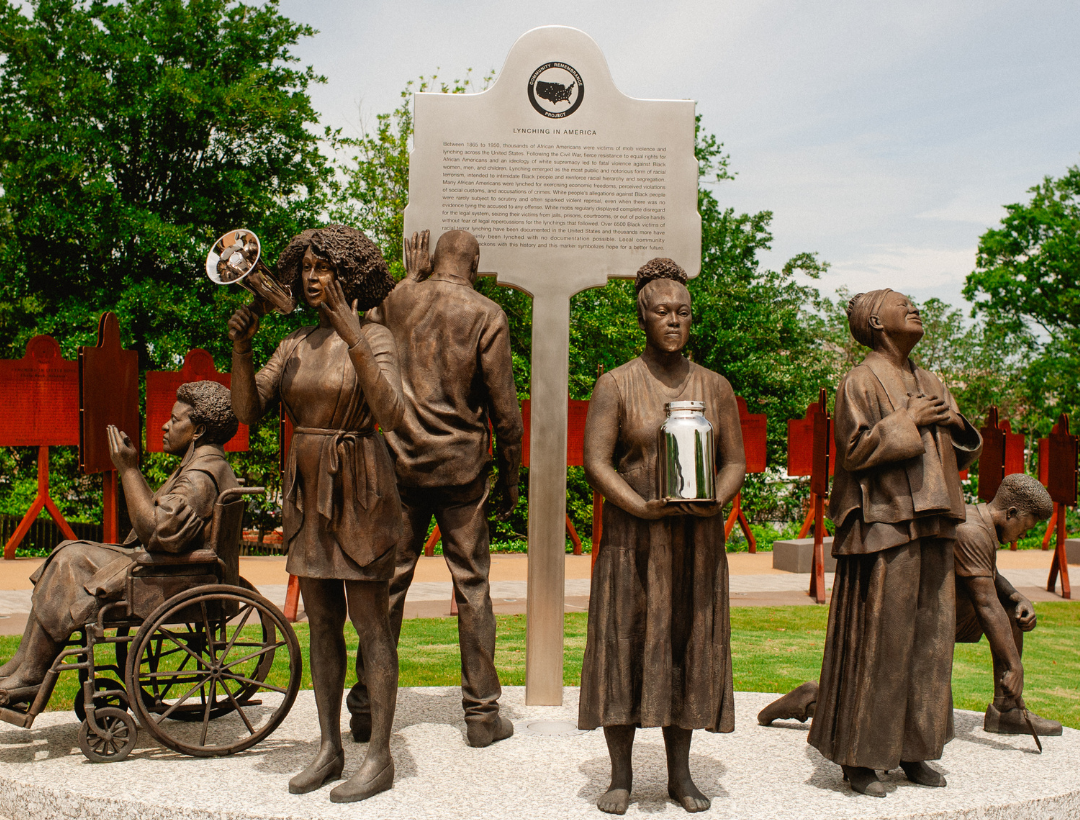Unveiling History: A Journey from Queens, NY, to Brewton, AL
At Rebuilding Together’s national office, I serve as an AmeriCorps member, creating education materials for our staff and network of affiliates. Recently, I was asked to create a resource on the issue of tangled titles and heirs’ property. A topic I wasn’t very familiar with, I started my research like any good historian would- on YouTube. All of a sudden, I was faced with poignant documentaries about land loss in the South, disproportionately affecting Black Americans. Emotional, visceral, yet disconnected from me. At least, that’s what I thought. I was born and raised in Queens, NY, where being a landowner isn’t really the goal- a rent-stabilized apartment in the borough of your choosing? Now that is true wealth. Even though I had family from the South, I had never been and didn’t feel at all connected to the South.
As I was continuing my research, a memory hit me like a lightning bolt. My grandfather, an African American chemist turned Minister, had grown up in Alabama! Brewton, Alabama to be exact and he had owned land. And now, after his passing, my father and aunt were landowners. That night I called my father and asked him what he was planning on doing with the land, and he told me he intended to sell it. I was devastated.
To rediscover that my family was landowning the same day I learned we wouldn’t be any longer was hard. I decided I wanted to see the land my grandfather had owned and see the town that shaped him. He left for Morehouse College when he was 16 and never returned to live in the South.
When I first heard that our annual staff retreat would be in Montgomery, AL, I knew my aspirations could be realized. I found that Brewton was only an hour and a half away from Montgomery- I’d be able to meet my family and see where my Poppy had grown up!
When I arrived in Brewton, I was met by my great aunt and second cousin. After initial hugs and introductions, they took me to see every place my family members had touched. From graveyards, to segregated schools, to houses they passed down on streets that bore our name, I was in awe of the personal history I was learning. Lastly, they showed me the land different family members owned for generations and the plot that my father and aunt intended to sell. It wasn’t anything particularly special, but knowing the history of land grabbing that faced African Americans, to know that my great-grandfather passed this land all the way to my own father was pretty amazing.
My friend who had gone with me asked my great aunt how she was able to keep going and not succumb to bitterness in the face of intense violence and hatred. She told us that her mother and father, my great grandparents, told her and her siblings to keep doing the right thing, to pay no mind to people who think you are lesser and to keep going because God sees all things and He will make things right. Our shared faith tells us that hoping in God is never in vain.
The days ahead, I spent in Montgomery with my colleagues from the national office. On Wednesday we headed to the Legacy Museum. The museum, created by the Equal Justice Initiative, traces the history from slavery to civil rights to mass incarceration. It is powerful, emotional and overwhelming at times. But I found as I walked through the halls, that my family’s story is part of a larger story. The story of surviving slavery, the Civil War, emancipation, the emergence of the Ku Klux Klan and fighting for equality and civil rights. The story of Black families fleeing the South from violence to make a life in the North, yet still facing institutional discrimination that steals lives, peace and generational wealth.

In an effort to process all we had seen, we came back and worked through these questions as a team– what new truths did we learn? What about our understanding of truth was challenged? How can we be close to those who are suffering? How does Rebuilding Together connect to everything we just saw? As we worked through these questions, several things occurred to me. Although I will probably never be a landowner in Alabama, I realized that the work I am doing here at Rebuilding Together is part of that same legacy– making sure Black families can stay in the neighborhoods and communities they grew up in and have come to cherish; making sure families are passed down homes that are safe and healthy to live in; and more recently, making sure families know the importance of estate planning for building generational wealth.
I also understood the importance of knowing this history in the field we are in. When looking at a homeowner whose home is in disrepair, I will think about this museum and all that I learned. What is their family history? Why are they living in the state they are in? What did their ancestors overcome? What barriers do they still face today? What is their story?
And what about my story? Although complex, I’m certain it is not unique. But even if it’s not shared by you, the story of our country is a personal one for us all. We all have a stake in this fight for equality, equity and justice- a legacy to honor, a wrong to right, a truth to tell.
As we do our work, let’s continue to honor the legacy of those who came before us, let us continue to right the wrongs we see and let us tell the truth, the whole truth, about what happened here and how it continues to affect us today. And as for me, I put my hope in God, who sees all things and will make all things right.